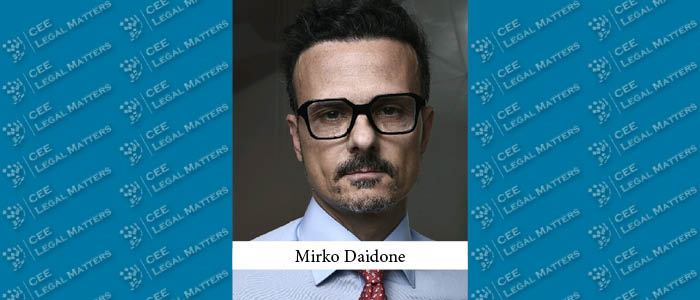Albania is undergoing transformation, with a burgeoning focus on tourism and renewable energy, according to CMS Managing Partner Mirko Daidone. While the legal frameworks are aligning with EU standards and the IT sector is thriving, affordability is decreasing and the country faces talent drain challenges.
“Albania is in the midst of an exciting transformation,” Daidone begins. “Over the past months, the focus has been on developing tourism, with the construction of resorts and a noticeable increase in property prices. The real main engines here are renewable energies and other sectors, which are drawing major international companies seeking to enjoy the country's opportunities,” he shares.
Moreover, Daidone points to the Albanian Prime Minister as a key player in this transformation. “He's been instrumental in attracting international attention and investments. Albania is widely considered one of the safest places in the world, and its development is progressing rapidly, with new hotels and skyscrapers springing up daily,” he says. “Notably, Marriott and Intercontinental are among the international names coming to Tirana, and the city is quickly becoming a competitive capital in Europe.”
To accommodate all these developments, the legal and regulatory framework in Albania is changing. “The legal framework in Albania has been evolving since 2009, with laws harmonized with EU legislation and directives,” Daidone says. “The country is diligently working to implement these agreements, though GDPR implementation differs slightly and is expected to be completed next year. The pace of development is impressive,” he says.
With all the changes the country has been experiencing, it would stand to reason to assume that it has become a sought-after destination – but it’s not all smooth sailing. “Albania is often viewed as a relatively affordable destination, but that's changing quickly,” Daidone continues. “The main contradiction lies in the rising cost of living: the wealth gap is widening, with the middle class struggling to keep pace. As a result, many people are seeking opportunities abroad, particularly in Germany. There's also a lack of personnel, which is a challenge that needs to be addressed,” he explains.
Focusing more on the specific business areas, Daidone puts a spotlight on the IT sector. ”The IT sector is indeed a rising star in Albania – many companies are hiring hundreds of employees to develop tourism and software,” he shares. “The taxation system is favorable, and salaries are competitive compared to other European countries. This sector is growing rapidly, but it's essential to address the issue of talent leaving the country,” he adds wearily.
Ultimately, Daidone reports that Albania seems to be on the path of becoming “one of the best places in Europe within the next decade. The country is forging its own way, unburdened by the complexities of EU membership. In Central Eastern Europe, other countries may be following a similar trajectory, but Albania's unique circumstances and mentality set it apart,” he concludes.
